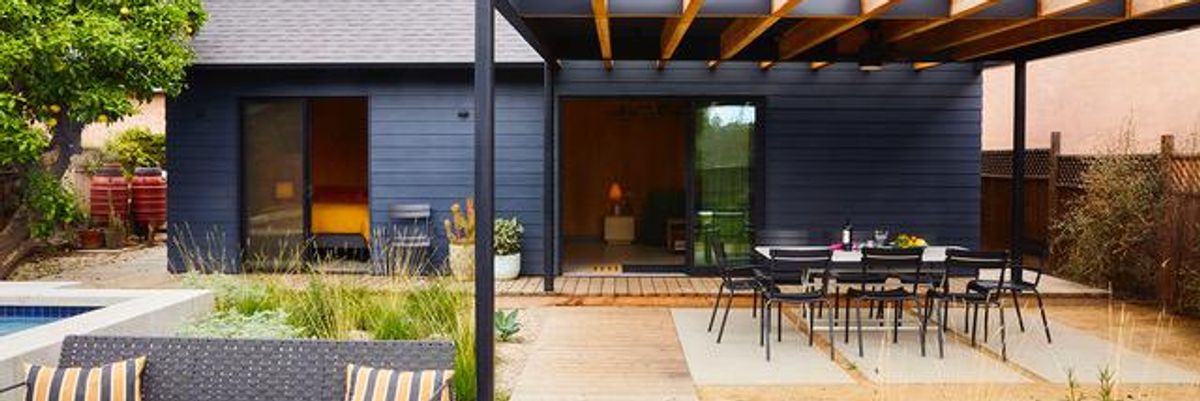

Get in the KNOW
on LA Startups & Tech
X
Design, Bitches
Looking to Build a Granny Flat in Your Backyard? Meet the Firms and Designs Pre-Approved in LA
Sarah Favot
Favot is an award-winning journalist and adjunct instructor at USC's Annenberg School for Communication and Journalism. She previously was an investigative and data reporter at national education news site The 74 and local news site LA School Report. She's also worked at the Los Angeles Daily News. She was a Livingston Award finalist in 2011 and holds a Master's degree in journalism from Boston University and BA from the University of Windsor in Ontario, Canada.
Adding a backyard home in Los Angeles is now nearly as easy as buying a barbecue.
Homeowners who for years have wanted to build a granny flat in their backyard, but dreaded the red tape, can now choose from 20 pre-designed homes that the city has already approved for use.
The shift, made official last week, will speed up a weeks-long process and bring more badly needed units to an overpriced market. It also has the potential to elevate the 14 startups and firms building the next generation of homes.
The designs for the stand-alone residences range from a 200-square-foot studio to a 1,200-square foot, two-story, two-bedroom unit. And many of the homes are filled with design flourishes, reflecting the diverse architecture of the city, from a house in the silhouette of a flower to one with a spiral outdoor staircase leading to the roof.
It's no surprise. The program was spearheaded by Christopher Hawthorne, a former architecture critic at the Los Angeles Times and now the city's chief design officer.
The firms are primarily local and startup architecture and design firms, while others are well-known with a history of building granny flats, also know as accessory dwelling units, or ADUs.
The standard plans avoid the Los Angeles Department of Building and Safety's typical four-to six-week review process and can allow approvals to be completed in as quickly as one day.
Some aspects of the plans can be modified to fit a homeowner's preferences. Eight other designs are pending approval.
Mayor Eric Garcetti believes by adding more such units, the city can diversify its housing supply and tackle the housing crisis. Recent state legislation made it easier to build the small homes on the lot of single-family residences. Since then, ADUs have made up nearly a quarter of Los Angeles' newly permitted housing units.
Because construction costs are relatively low for the granny flats – the pre-approved homes start at $144,000 and can go beyond $300,000 – the housing is generally more affordable. The median home price in L.A. County in January was $690,000.
Here's a quick look at the designs approved so far:
Abodu
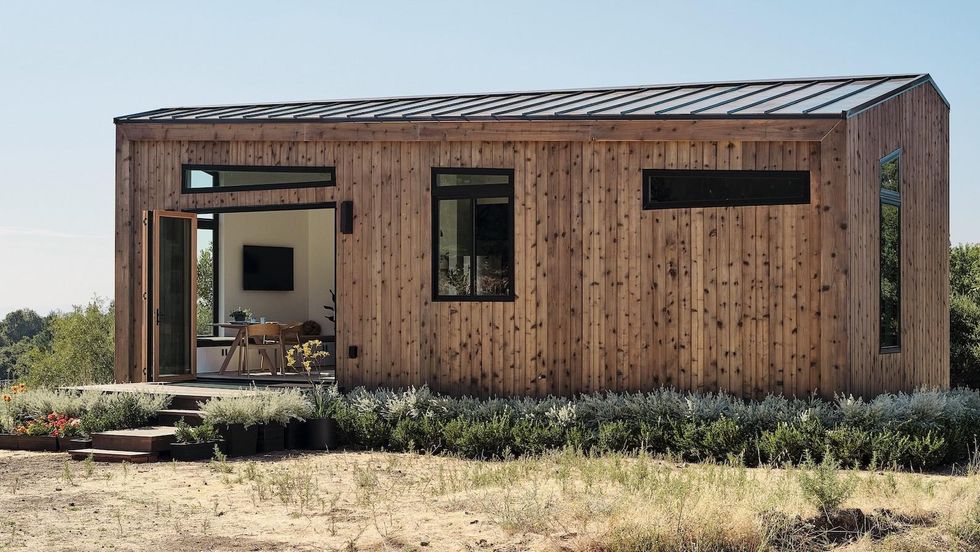
Abodu
Abodu, based in Redwood City in the Bay Area, exclusively designs backyard homes. In 2019, it worked with the city of San Jose on a program similar to the one Los Angeles is undertaking.
In October, it closed a seed funding round of $3.5 million led by Initialized Capital.
It has been approved for a one-story 340-square-foot studio, a one-story one-bedroom at 500 square feet, and a one-story, 610-square-foot two-bedroom.
The pricing for the studio is $189,900, while the one-bedroom costs $199,900 and the two-bedroom is $259,900.
Amunátegui Valdés Architects
Led by Cristobal Amunátegui and Alejandro Valdés, the firm was founded in 2011 and has offices in Los Angeles and Santiago, Chile. Amunátegui is an assistant professor at the Department of Architecture and Urban Design at UCLA.
The firm designs work in various scales and mediums, including buildings, furniture and exhibitions.
Its one-story, two-bedroom with a covered roof deck 934-square-foot unit is pending approval from the city.
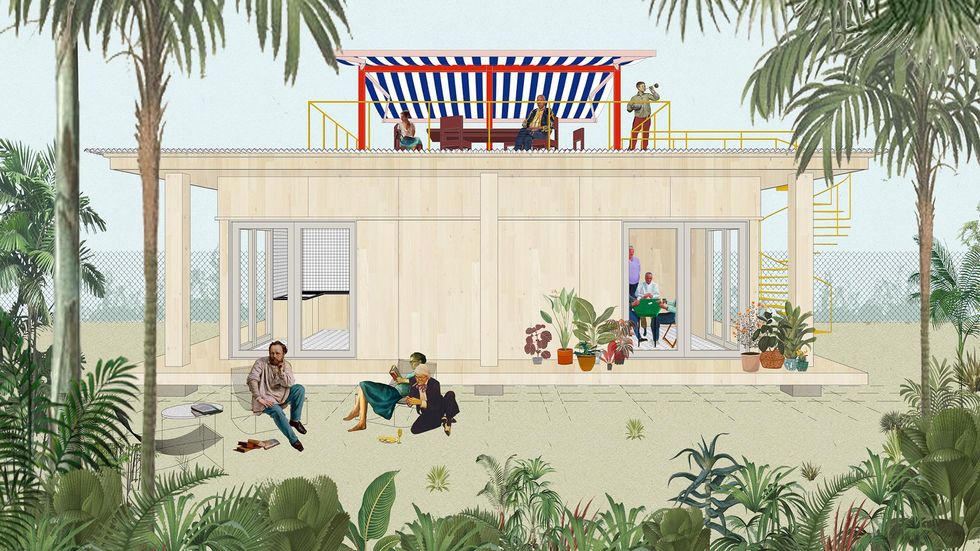
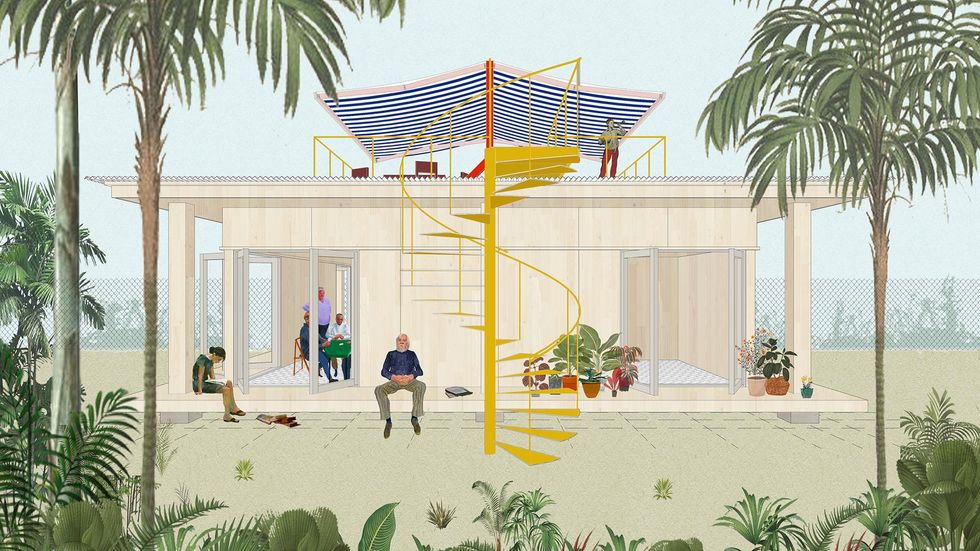
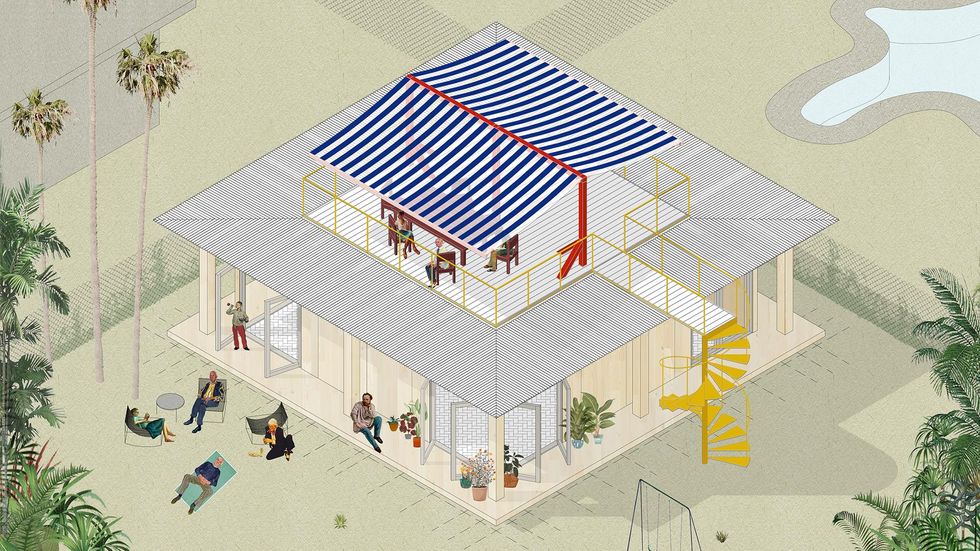
Connect Homes
Connect Homes has a 100,000-square foot factory in San Bernardino and an architecture studio in Downtown L.A.
It specializes in glass and steel homes and has completed 80 homes in California. Its designs have an aesthetic of mid-century modern California residential architecture.
It has two one-bedroom models pre-approved by the city, one is 460 square feet, which costs $144,500 with a total average project cost of $205,000. The other is 640 square feet, which costs $195,200 with a total project cost of $280,000.
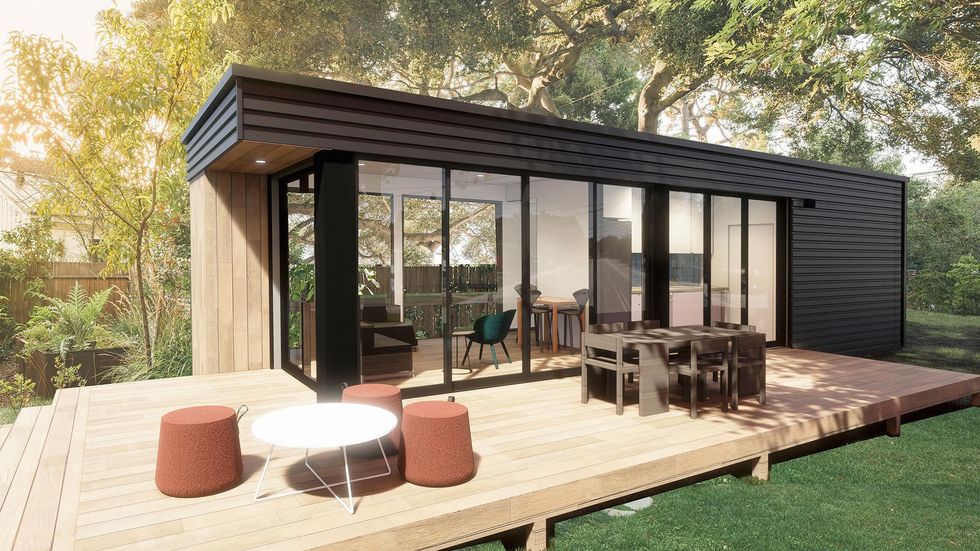
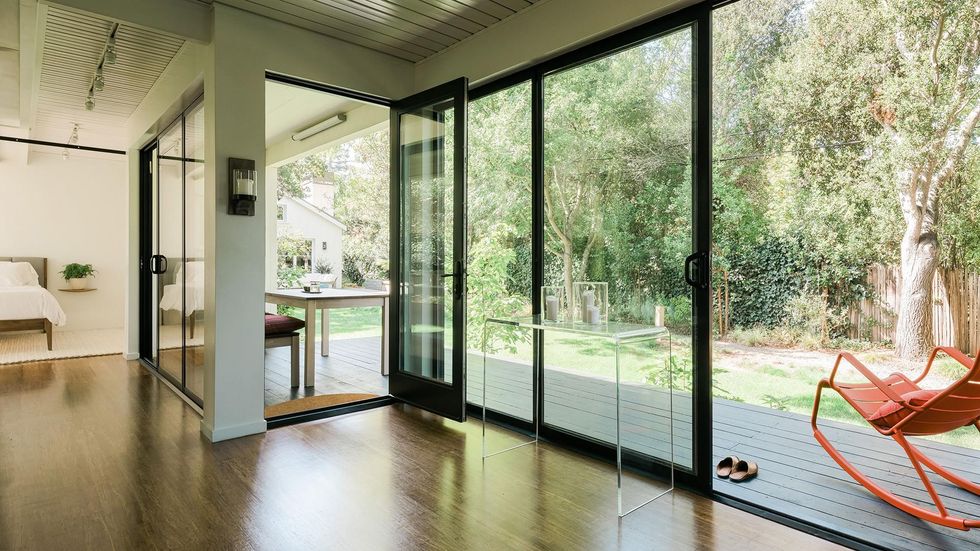
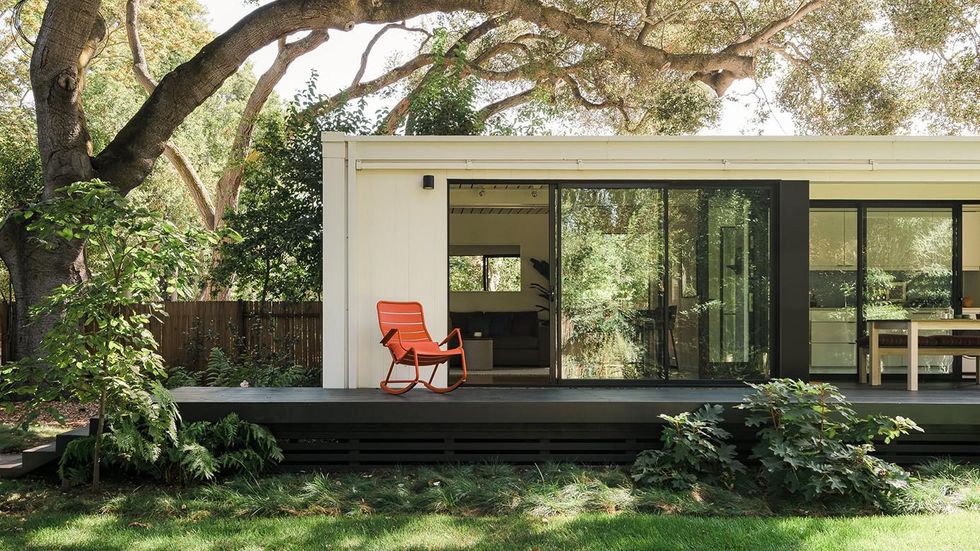
Design, Bitches
The Los Angeles-based architectural firm founded in 2010 describes itself as having a "bold and irreverent vision." Its projects include urban infill ground-up offices to single-family homes, adaptive re-use of derelict commercial buildings and renovations of historic landmarks.
Its pre-approved design, named "Midnight Room," is a guest house/ studio. Its bedroom can be left open for a loft feel or enclosed as a separate room. The design is a one-story, one-bedroom at 454 square feet.
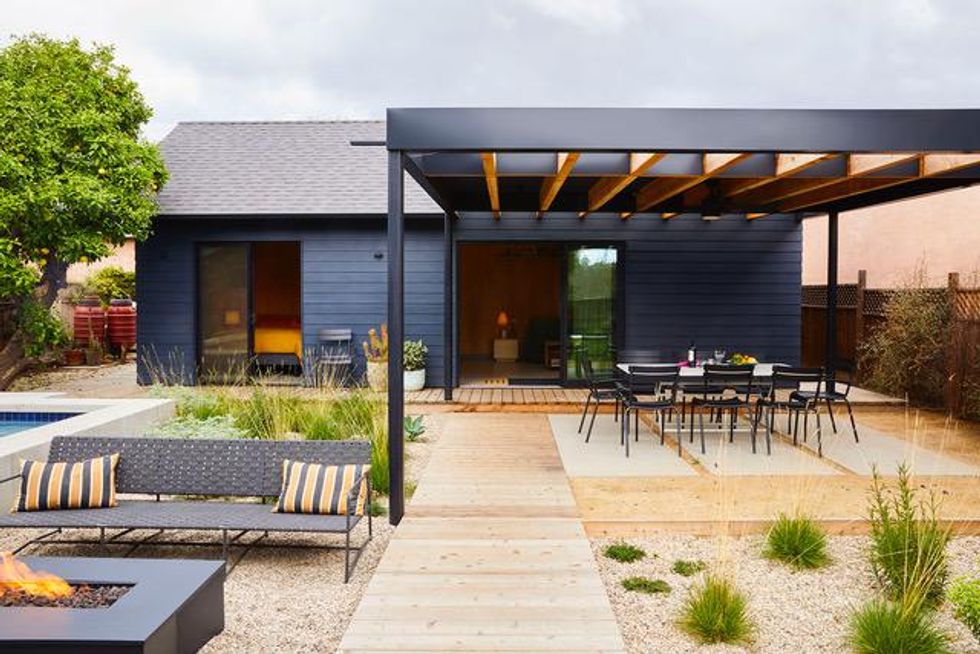
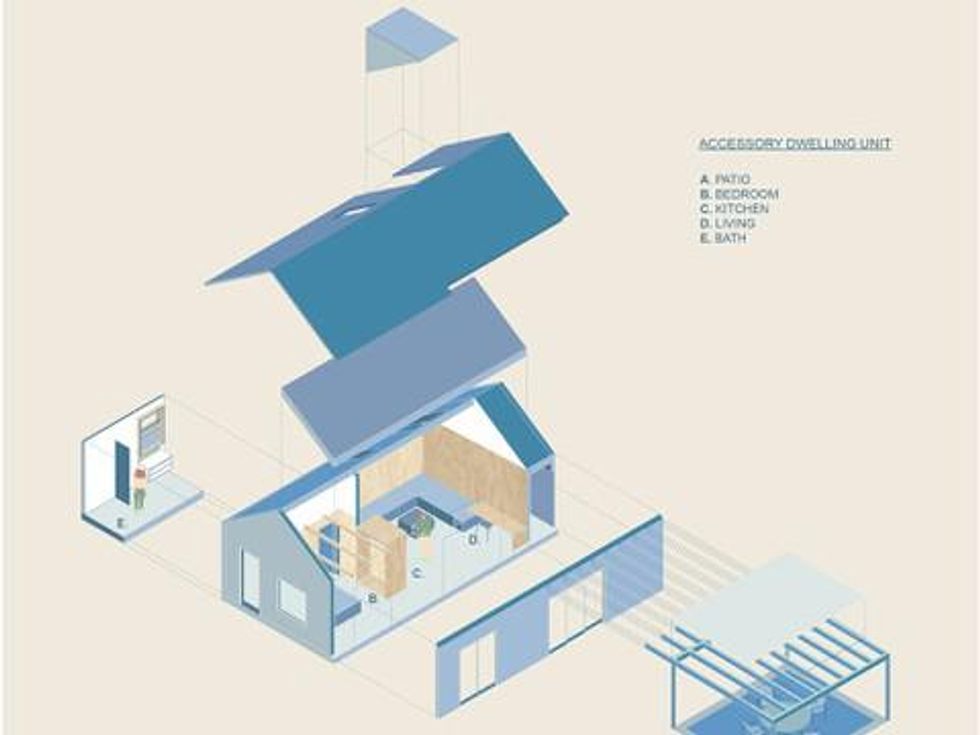
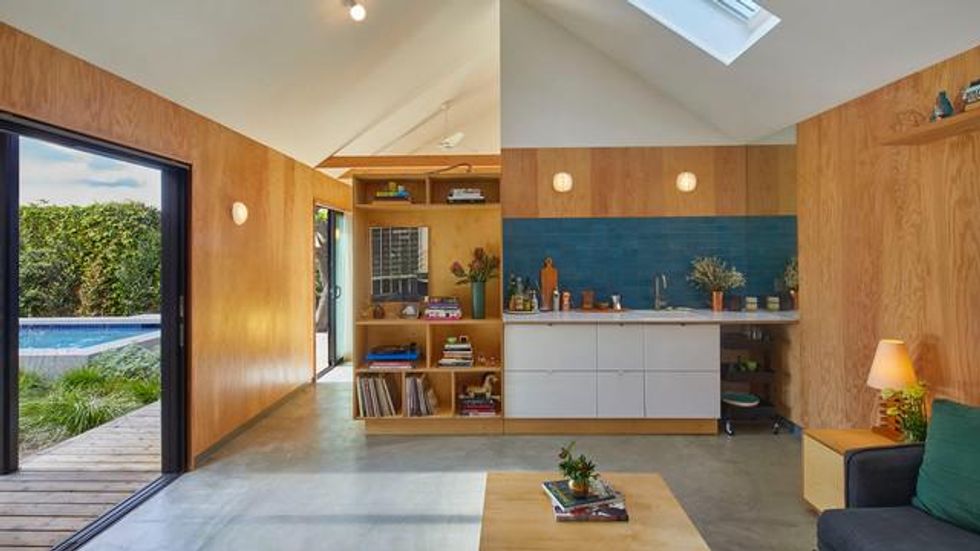
Escher GuneWardena Architecture
Founded in Los Angeles in 1996, Escher GuneWardena Architecture has received international recognition and has collaborated with contemporary artists, worked on historical preservation projects and more.
The company has been approved for two different one-story, one- or two-bedroom units, one at 532 square feet with an estimated cost of $200,000 and another at 784 square feet with an estimated cost of $300,000. The firm noted the costs depend on site conditions and do not include soft costs. Those could add 10% to 12% to the total construction costs.
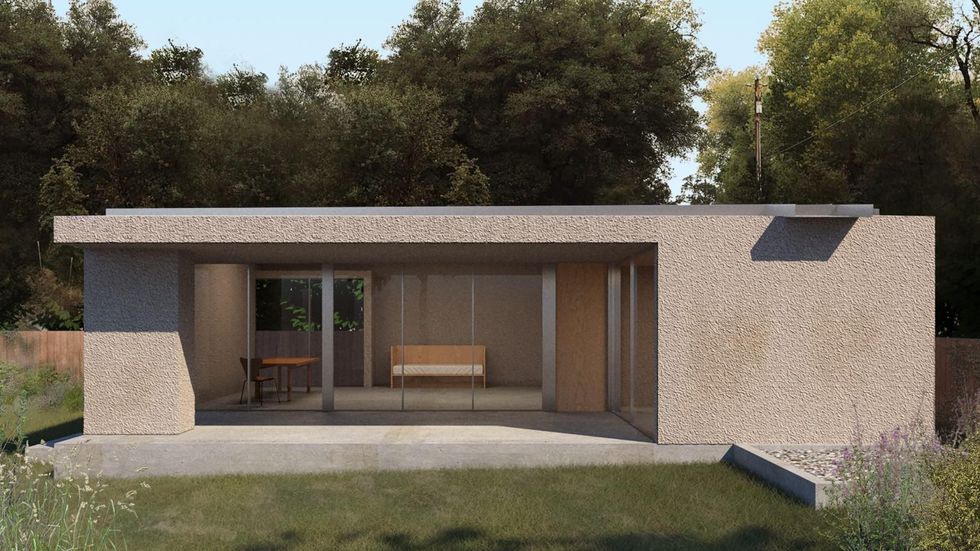
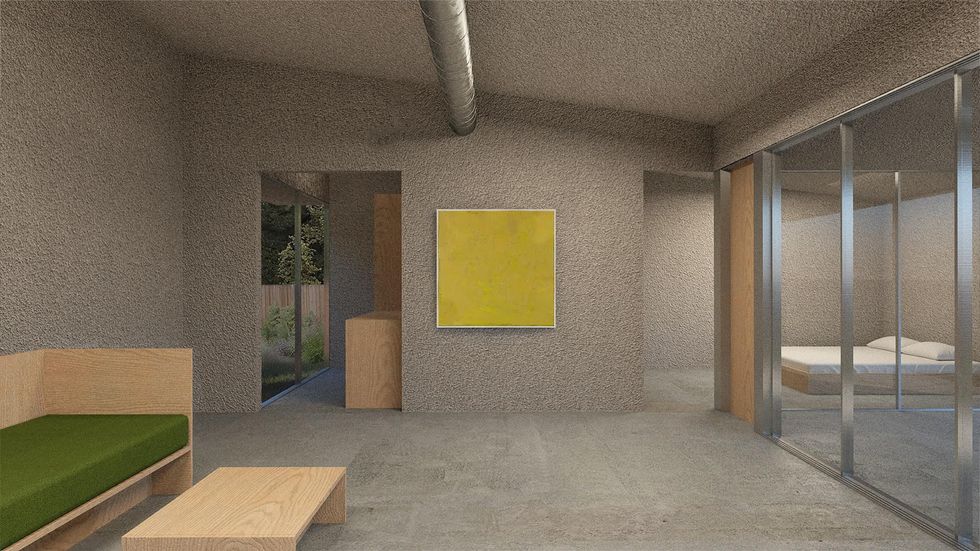
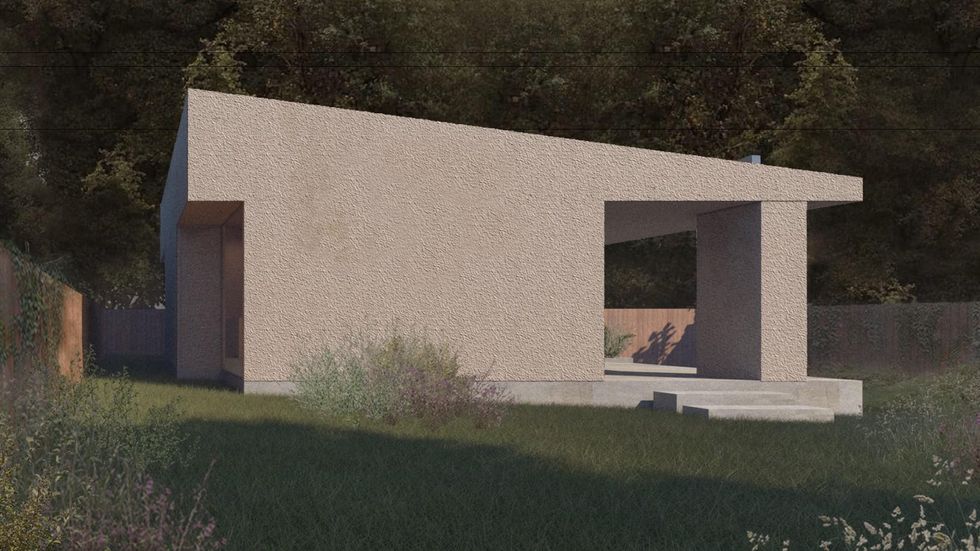
First Office
First Office is an architecture firm based in Downtown Los Angeles. Its approved ADUs will be built using prefabricated structural insulated panels, which allow for expedited construction schedules and high environmental ratings.
The interior finishes include concrete floors, stainless steel counters and an occasional element of conduit.
There are five options:
- A one-story studio, 309 to 589 square feet
- A one-story one-bedroom, 534 to 794 square feet
- And a one-story two-bedroom, 1,200 square feet
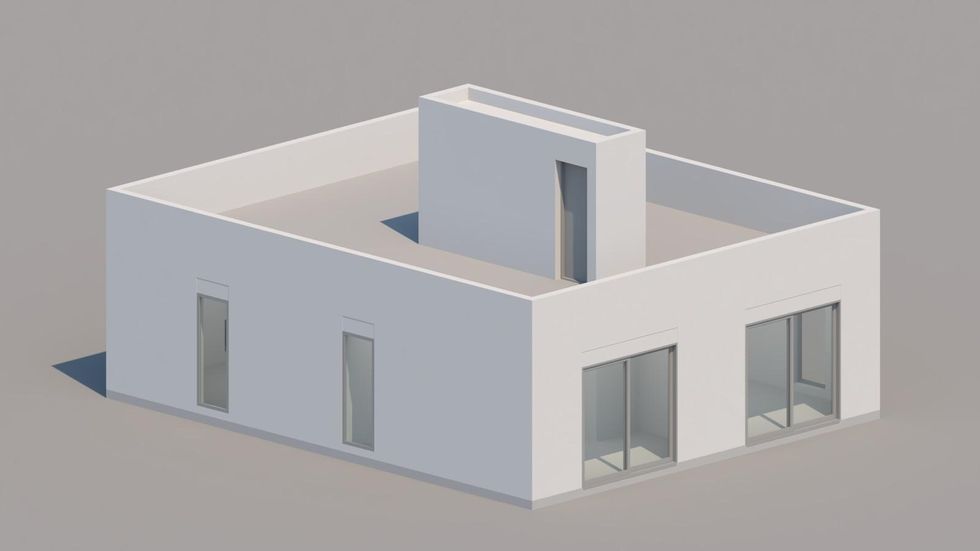
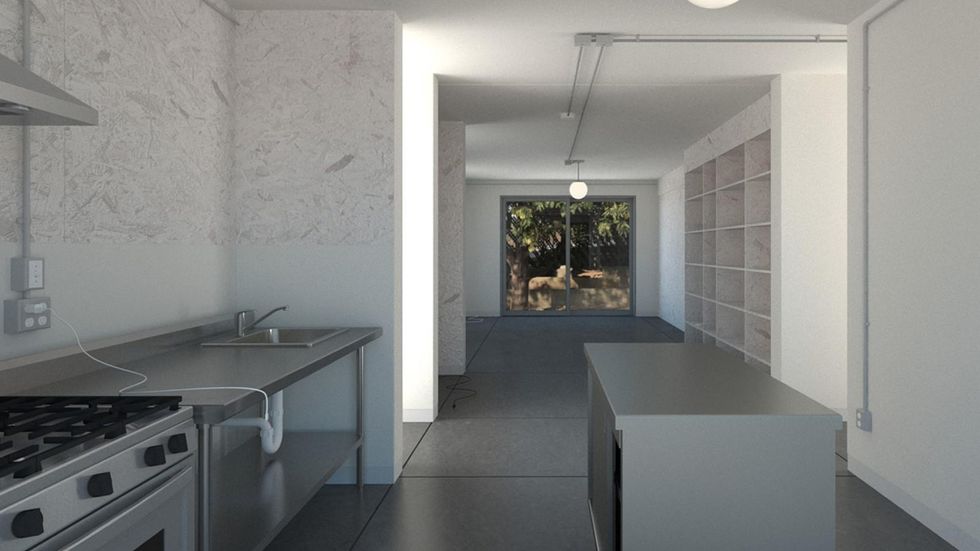
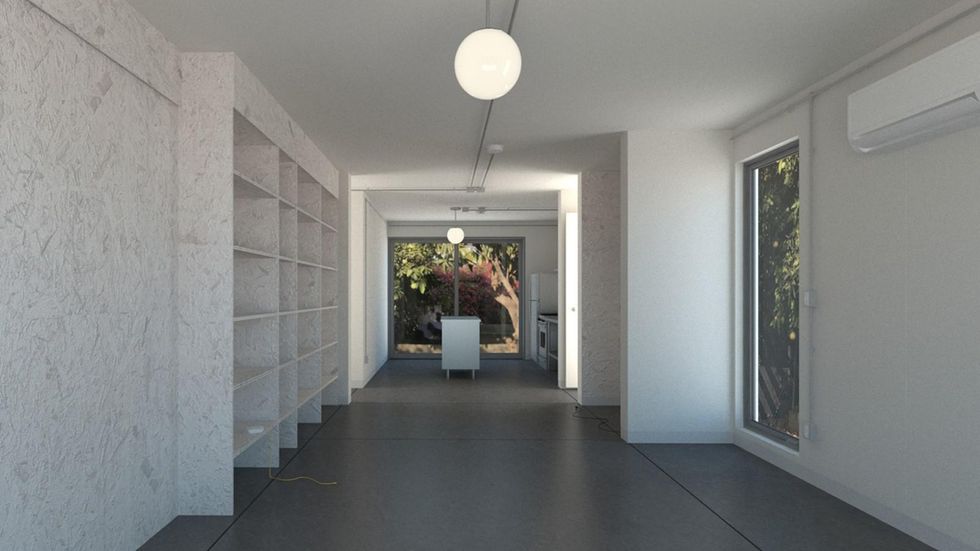
Fung + Blatt Architects
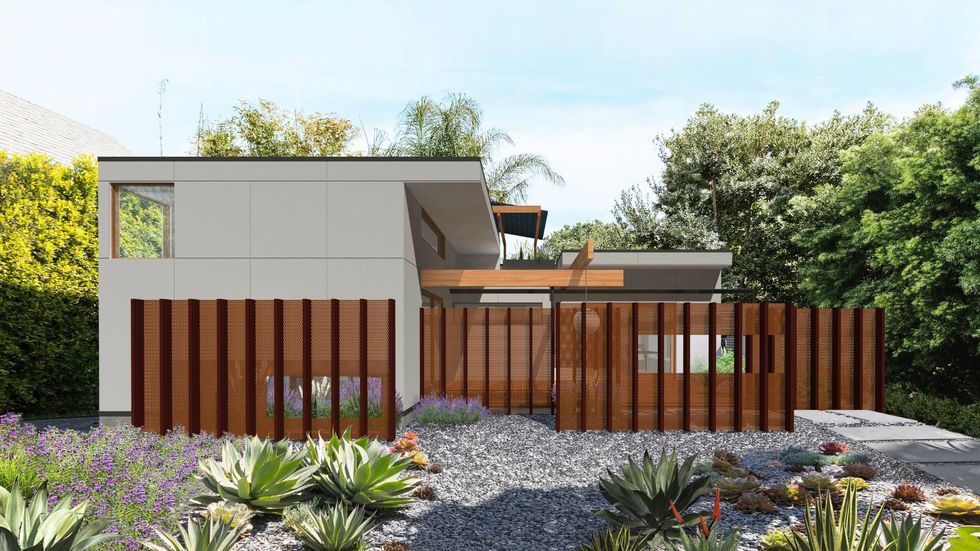
Fung + Blatt Architects is a Los Angeles-based firm founded in 1990.
The city has approved its 795-square-foot, one-story, one-bedroom unit with a roof deck. It estimates the construction cost to be $240,000 to $300,000, excluding landscape, site work and the solar array. Homeowners can also expect other additional costs.
Taalman Architecture/ IT House Inc.
The design team behind "IT House" is Los Angeles-based studio Taalman Architecture. Over the past 15 years, IT House has built more than 20 homes throughout California and the U.S.
The IT House ADU standard plans include the tower, bar, box, cube, pod and court.
The city has approved four options, including:
- A two-story including mechanical room, 660 square feet
- A two-story including mechanical room, 430 square feet
- A one-story studio, 200 square feet
- A one-story including mechanical room, 700 square feet
The firm also has another two projects pending approval: a 360-square-foot one-story studio and a one-story, three-bedroom at 1,149 square feet.
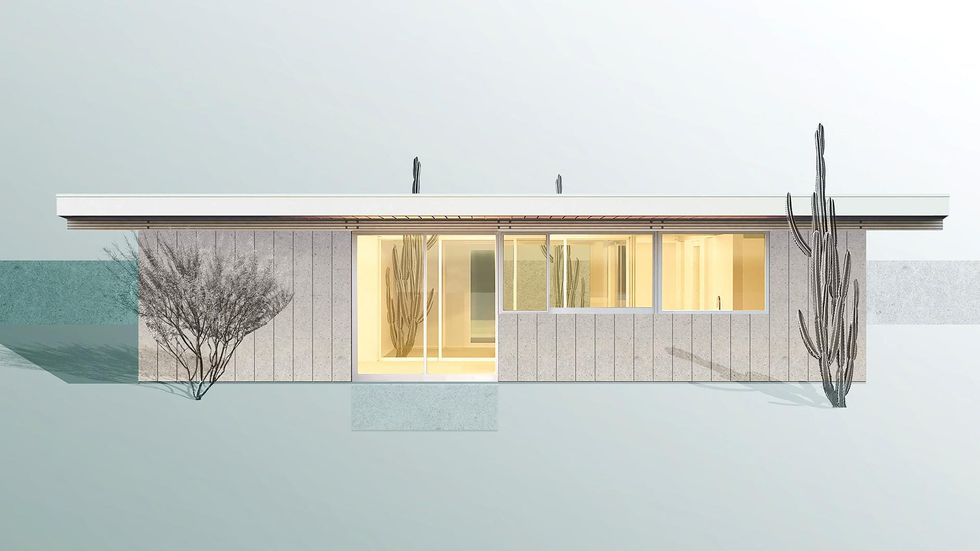

LA Más
LA Más is a nonprofit based in Northeast Los Angeles that designs and builds initiatives promoting neighborhood resilience and elevating the agency of working-class communities of color. Homeowners who are considering their design must commit to renting to Section 8 tenants.
The city has approved two of LA Más' designs: a one-story, one-bedroom, 528 square feet unit and a one-story, two-bedroom, 768 square feet unit. The firm has another design for a one-story studio pending approval. That design would be the first 3D-printed ADU design in the city's program.
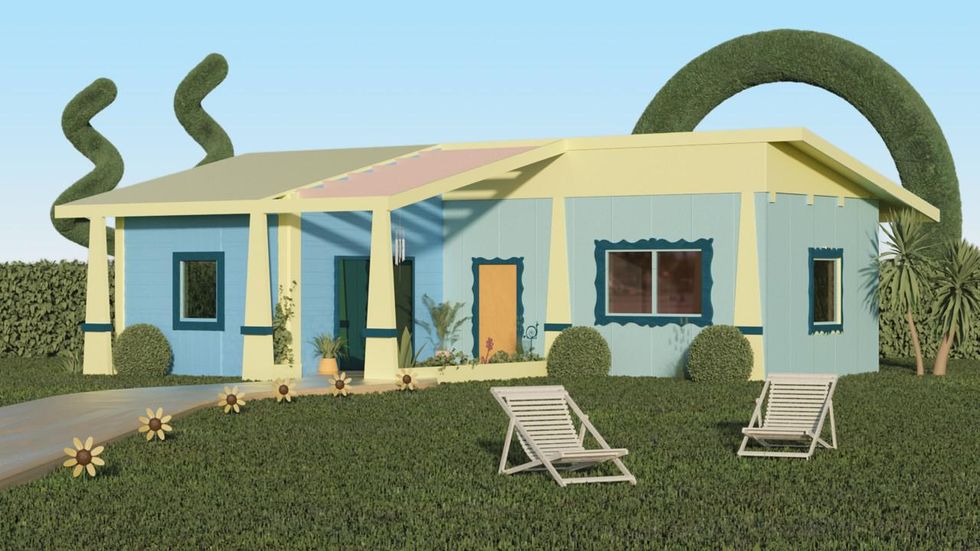
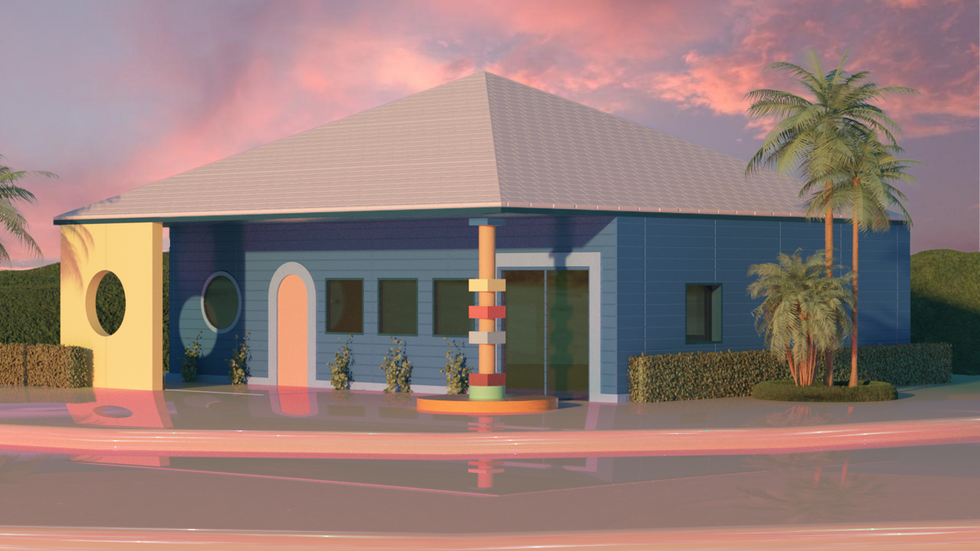

Jennifer Bonner/MALL
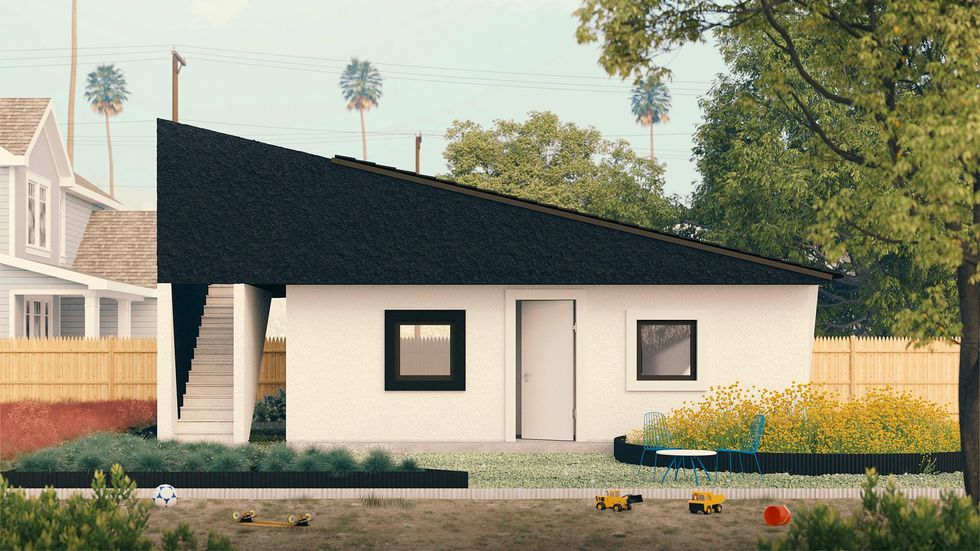
Massachusetts-based Jennifer Bonner/MALL designed a "Lean-to ADU" project, reinterpreting the stucco box and exaggerated false front, both Los Angeles architectural mainstays.
The design has been approved for a 525-square-foot one-story, one-bedroom unit with a 125-square-foot roof deck.
sekou cooke STUDIO
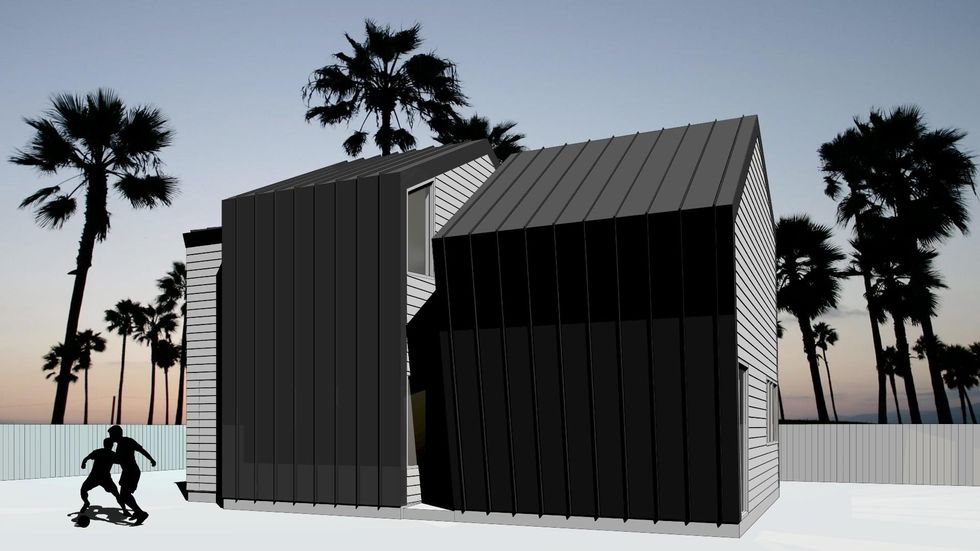
New York-based sekou cooke STUDIO is the sole Black-owned architectural firm on the project.
"The twisted forms of this ADU recalls the spin and scratch of a DJ's records" from the early 90s, the firm said.
Its design, still pending approval, is for a 1,200-square-foot, two bedroom and two bathroom can be adapted to a smaller one-bedroom unit or to include an additional half bath.
SO-IL

New York-based SO-IL was founded in 2008. It has completed projects in Leon, Seoul, Lisbon and Brooklyn.
Its one-story, one-bedroom 693-square-foot unit is pending approval. It is estimated the construction cost will be between $200,000 and $250,000.
WELCOME PROJECTS
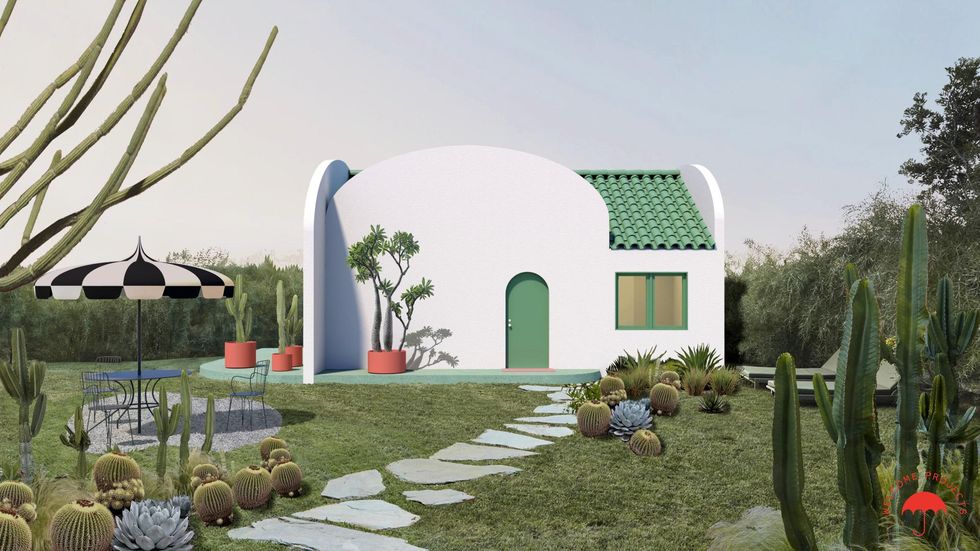
Los Angeles-based Welcome Projects has worked on projects ranging from buildings, houses and interiors to handbags, games and toys.
Its ADU is nicknamed The Breadbox "for its curved topped walls and slight resemblance to that vintage counter accessory."
It has been approved for a one-story, one-bedroom 560-square-foot unit.
wHY Architecture
Founded in 2004, wHY is based in Los Angeles and New York City. It has taken on a landmark affordable housing and historic renovation initiative in Watts.
Its one-story, one- or two-bedroom 480 to 800-square-foot unit is pending approval.
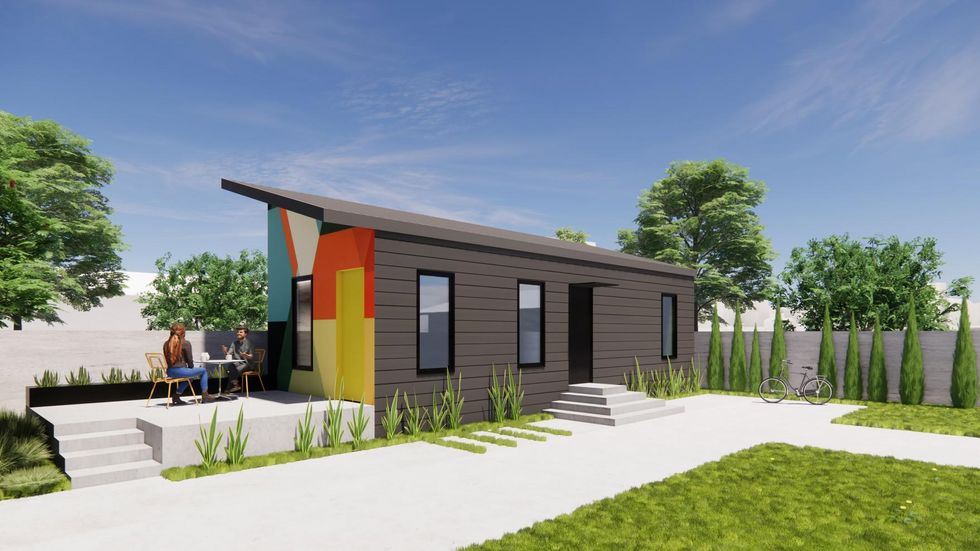
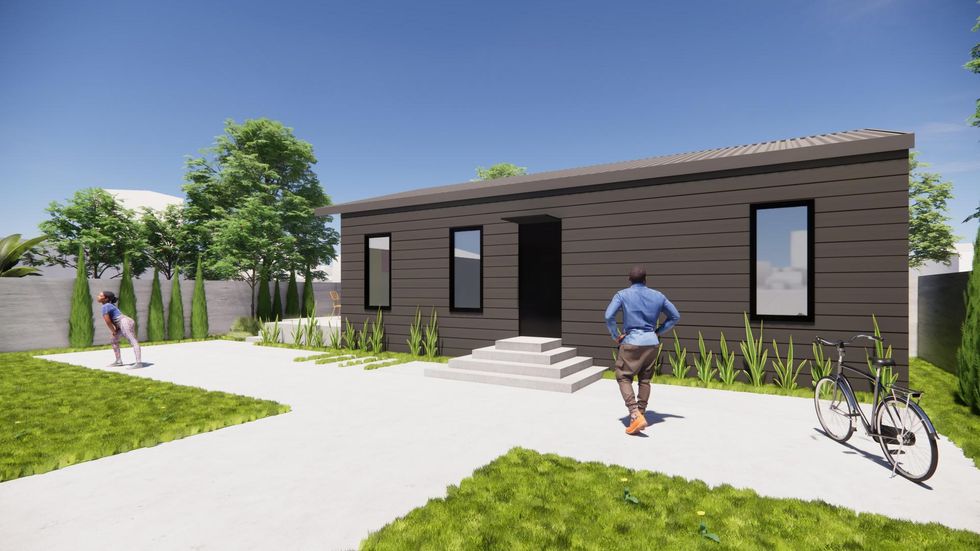
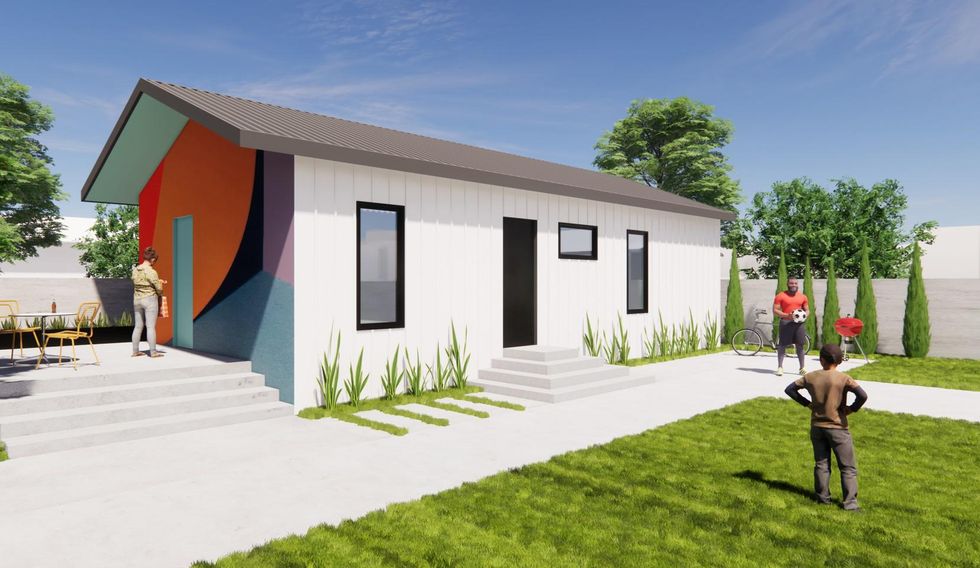
Firms that want to participate in the program can learn more here . Angelenos interested in building a standard ADU plan can learn more the approved projects here.
From Your Site Articles
- United Dwelling Raises $10M to Address the Housing Shortage ... ›
- Plant Prefab Raises An Additional $30 Million - dot.LA ›
- How 3D Printing Could Help Tackle Homelessness in LA - dot.LA ›
- New Bills, New Startups Address Housing in California - dot.LA ›
- LA's ADU Culture Still Faces Financial Barriers - dot.LA ›
- What Will Take To Make Modular Homes Mainstream? - dot.LA ›
Related Articles Around the Web
Sarah Favot
Favot is an award-winning journalist and adjunct instructor at USC's Annenberg School for Communication and Journalism. She previously was an investigative and data reporter at national education news site The 74 and local news site LA School Report. She's also worked at the Los Angeles Daily News. She was a Livingston Award finalist in 2011 and holds a Master's degree in journalism from Boston University and BA from the University of Windsor in Ontario, Canada.
Ebay 2.0? Whatnot's $50M Bid To Take Auction Excitement to Livestream Video
09:00 AM | May 25, 2021
Photo by Thimo Pedersen on Unsplash
A few years ago, you went to eBay to bid on limited edition sports cards or out-of-print comic books. Then, livestreaming came to town.
Two weeks ago, one Pokemon collector dropped $17,500 on a Skyridge Charizard Holo card during a broadcasted event streamed live on Whatnot.
What began as a social app for collectors to swap stories and photos has ballooned into a digital stage for live auctions and unboxing videos. Since January, the Los Angeles tech startup has hired some 40 employees and leased a 10,000 square-foot office space in the Marina Arts District.
And on Tuesday — just a few months since its last big boost — the startup closed a $50 million Series B round.
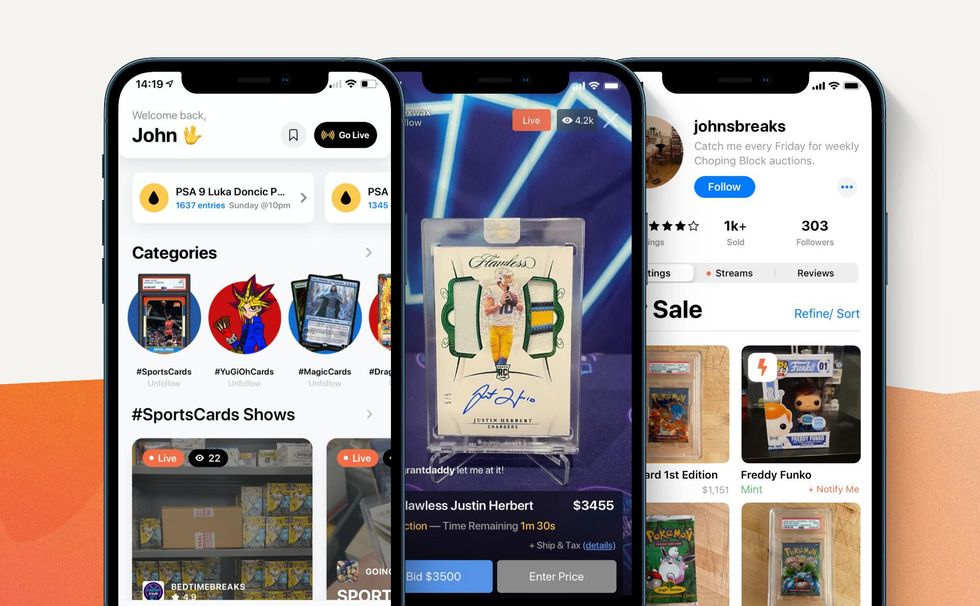
"It's probably one of the fastest growing marketplaces we've ever seen," said Y Combinator's Anu Hariharan, who led the round.
It's been over a year since consumers moved online in droves and investors are still sinking millions into retail technology —livestream shopping especially.
L.A.-based Popshop Live was valued at $100 million last fall after an investor bidding war to lead its Series A. Talkshoplive, which hosts celebrities livestreaming about their memoirs and latest albums, scored seed capital in February from a venture firm backed by eBay's founder.
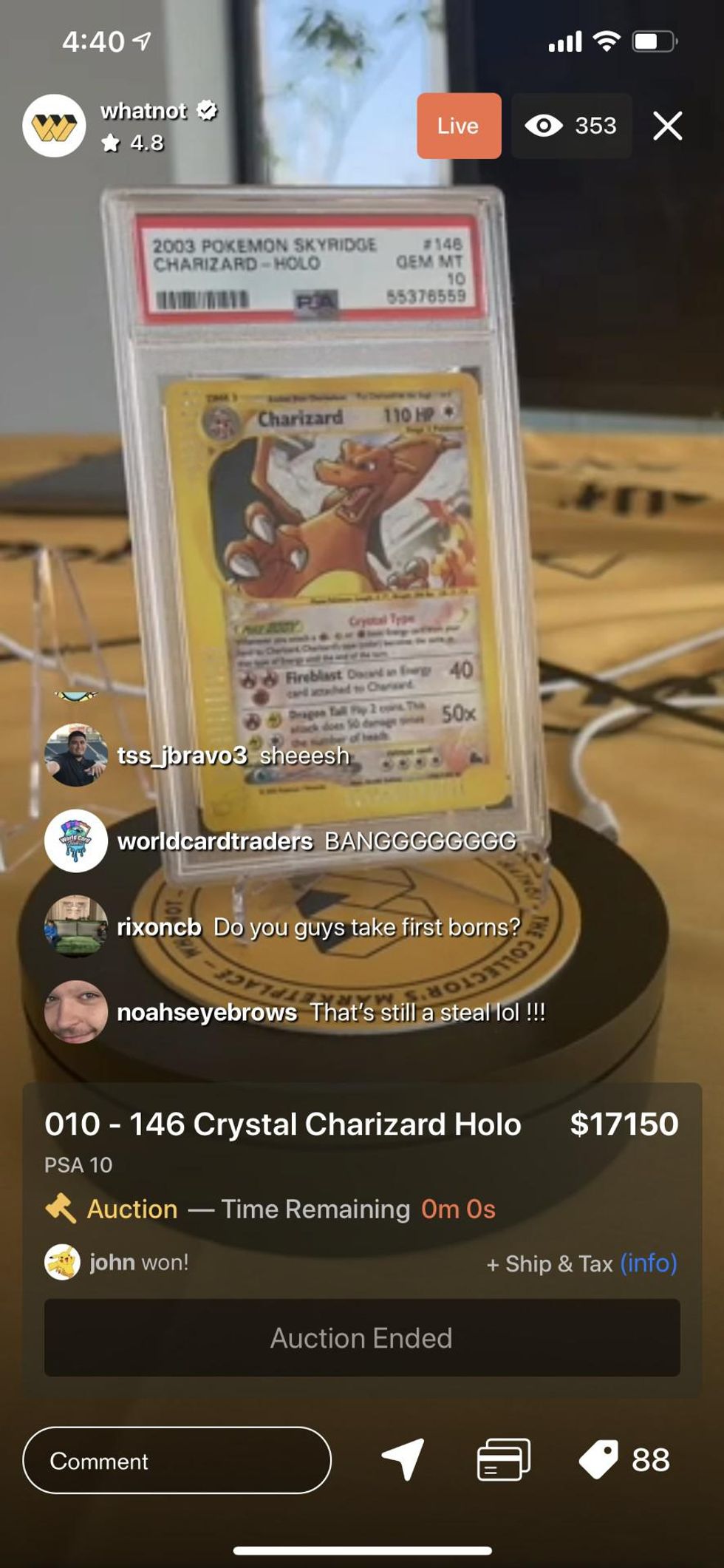
One Pokemon collector dropped $17,500 on a 1st Edition Shining Charizard card during a broadcasted event streamed live on Whatnot.
What gives? Hariharan said U.S. ecommerce has only embraced video in the last three to five years, and now it's everywhere. Even retailers like Home Depot introduced livestream demos and workshops during the pandemic.
Grant Lafontaine, the CEO and co-founder of Whatnot, brought the technology to a niche, well-connected community of online shoppers. He founded the company in 2019 with Logan Head, a former product manager at the online sneaker marketplace GOAT.
Their users are 18 to 32-year-old collectors who spend hours browsing eBay listings but crave something more interactive.
"They're on eBay because they're buying the collectibles, they're on Instagram to show them off," Lafontaine said. "They come to Whatnot because they can do both."
The company got its start as a social platform and marketplace — sans video livestreaming. That function came later, after a steady pool of users made checking Whatnot a daily habit.
"I was the first person to go live," Lafontaine said. "I sold out $5,000 worth of collectibles in two-and-a-half hours. The experience kind of spoke for itself. Anyone who saw it wanted to use it."
Other investors include Andreessen Horowitz, Animal Capital, musicians Ryan Tedder and DJ Skee with Min 10 and NFL players DeAndre Hopkins, Bobby Wagner and Jeremy Padawer. The company has raised $75 million to date.
Whatnot now boasts 15 categories of collectibles, from FunkoPops to sports cards (the most popular category on the app) to a few newer experimental verticals like vintage clothing. Within the next year, Lafontaine said he hopes to hit 30.
"For a young startup, it's always important to start with one or two categories, not with everything," said Hariharan. "What Whatnot has done really well in collectives will help them scale pretty much any product."
The app, she said, is on its way to becoming "eBay 2.0."
A previous version of this story stated Whatnot closed a $40 million Series B Round. The correct amount is $50 million.From Your Site Articles
- Whatnot Joins Livestream Shopping Craze with $20M Boost - dot.LA ›
- Whatnot, the App to Buy Rare Pokemon Cards, Raises $150M - dot.LA ›
- Whatnot Partners With UFC Fighter Jorge Masvidal - dot.LA ›
- Collectors Raises $100 Million, Rolls Out Rebrand - dot.LA ›
- Inside eBay's 'Wear Them Out' Sneaker Pop-Up Shop in LA - dot.LA ›
- Whatnot App Gets a $260M Boost, Fifth Wall Closes $500M Fund - dot.LA ›
- WhatNot Offers Black Friday Prize of Free Trip to Space - dot.LA ›
Related Articles Around the Web
Read moreShow less
Francesca Billington
Francesca Billington is a freelance reporter. Prior to that, she was a general assignment reporter for dot.LA and has also reported for KCRW, the Santa Monica Daily Press and local publications in New Jersey. She graduated from Princeton in 2019 with a degree in anthropology.
https://twitter.com/frosebillington
francesca@dot.la
Swipe Less, Know More, Build Faster: LA’s AI Push
10:25 AM | November 07, 2025
🔦 Spotlight
Happy Friday LA!
This week was about AI moving from side feature to core product strategy. Tinder is testing an opt-in “Chemistry” flow that learns your interests with permission, including signals from your camera roll, to propose fewer, higher quality matches. Snap is wiring Perplexity’s conversational, source linked answers directly into Snapchat. And Rivian spun out Mind Robotics to take the industrial AI it built for its own lines to a broader market.
Tinder Bets on AI for Quality Over Quantity
Tinder is piloting Chemistry, an opt-in experience that starts with a short Q&A and, with permission, analyzes cues from your camera roll to build a richer picture of what you like. The aim is to cut through swipe fatigue by presenting a smaller set of high intent matches each day, first in New Zealand and Australia, as part of Match Group’s larger 2026 product overhaul. The pitch is relevance and control, with phased rollout and consent front and center; if engagement lifts, expect tighter loops between real world signals and match recommendations.
Snap Brings Perplexity Answers into Snapchat
Snap struck a deal with Perplexity to deliver conversational, source linked results inside Snapchat starting in early 2026, backed by a one year cash and equity package reportedly worth about 400 million dollars. Ask a question where you already spend time and get a cited answer without hopping to a mobile browser, with Snap emphasizing that Snapchat data will not train Perplexity’s models. The announcement landed alongside improving fundamentals, signaling Snap’s plan to make trustworthy answers feel native to social habits rather than a separate destination.
Rivian Spins Out Mind Robotics
Rivian formed Mind Robotics to productize the software and systems that coordinate its own manufacturing, raising roughly 110 to 115 million dollars led by Eclipse. The goal is to sell factory floor intelligence beyond vehicles, including adaptive quality control, smarter material handling, and autonomous workflows that reduce downtime. With Rivian’s headquarters in Irvine and a growing regional robotics talent base, this puts Southern California on the map for next generation industrial automation tied to the EV supply chain.
Bottom line
LA’s tech scene is pushing AI toward measurable outcomes: better match quality, faster answers with clear citations, and more efficient production. Keep an eye on the unsexy details, including privacy choices and user consent, data boundaries between partners, and how each team turns these features into monetization. That is where this week’s announcements will turn into lasting advantage.
🤝 Venture Deals
LA Companies
- Evotrex exited stealth with a $16M Pre-A round led by Xstar Capital, with Unity Ventures, Kylinhall Partners, Vision Plus Capital, and founders of Anker Innovations participating; the capital will expand engineering and speed commercialization of its first product. The California startup plans to debut what it calls the world’s first power-generating RV trailer at CES 2026, designed to provide off-grid power and help extend EV range while towing. - learn more
- Zest AI, which provides AI-driven credit underwriting and lending intelligence for banks and credit unions, closed an oversubscribed, customer-led financing round from SchoolsFirst, Members 1st, ORNL, and Truliant credit unions, with participation from Citi Ventures. The company says the round came at a higher valuation than its prior growth raise and will fund more automation across the borrower journey and a broader rollout of LuLu, its generative AI lending-intelligence platform. - learn more
- Estate Media, the social first real estate media startup co-founded by “Million Dollar Listing” star Josh Flagg, says it has surpassed $6M in revenue and closed a $1M seed round, bringing total funding to $2.65M. New investors include Tinder co-founder Justin Mateen and real estate and media figures such as Samir Mezrahi (“Zillow Gone Wild”), Tracy Tutor, and Hudson Advisory, which the company says positions it for profitability and further growth. - learn more
LA Venture Funds
- Cedars Sinai Ventures joined Amae Health’s $25M Series B, led by Altos Ventures with participation from Quiet Capital, Bling Capital, Healthier Capital, and 8VC. The company, which is building an AI enabled clinic model for severe mental illness, says the funding will accelerate nationwide clinic openings, advance its AI care platform, and support research into conditions like schizophrenia, bipolar disorder, and treatment resistant depression. Total funding now tops $50 million. - learn more
- Magnify Ventures participated in MiSalud Health’s new funding round led by IGNIA, alongside Ulu Ventures, Redwood Ventures, Amplifica Capital, and client investor Taylor Farms. MiSalud, which delivers bilingual virtual and on-site care for blue-collar workforces, says the capital will help it expand into 20 new states and add services typically offered only in person; reports peg total funding at about $18.3 million. - learn more
- Alexandria Venture Investments participated in Accipiter Biosciences’ $12.7M seed round, which was co-led by Takeda and Flying Fish Partners. The Seattle startup is developing AI-designed de novo protein therapeutics that can combine multiple mechanisms in a single molecule, and it also announced partnerships with Pfizer and Kite Pharma alongside the financing. The company says the funds will advance preclinical programs in immunology and oncology and further build out its computational design platform. - learn more
- Rebel Fund participated in Cactus’s $7M seed round alongside Wellington Management, Y Combinator, and Pelion Venture Partners. Cactus builds a 24/7 AI copilot for home service businesses that answers calls, qualifies leads, books jobs, and manages follow ups to capture after hours demand. The company says the funding will support product expansion and go to market growth in the United States. - learn more
- B Capital joined the angel round for Microtide Biotechnology (also known as Weitao Bio), which raised over RMB 100 million, led by Qiming Venture Partners. The Shanghai company, spun out from Sile Biomedicine’s in vivo CAR T platform, is developing targeted LNP delivered in vivo CAR T therapies for blood cancers and autoimmune diseases, and will use the funds to advance its first candidate and further develop its core platform. - learn more
- Patron co led Flint’s $15M Series A, with participation from the USC Viterbi School of Engineering alongside Basis Set Ventures, AME Cloud Ventures, Afore Capital, and Y Combinator. Flint builds an AI platform that helps teachers personalize K 12 learning, and the company says the funding will accelerate product development and scale the service to more schools. - learn more
- Rebel Fund participated in Freya’s $3.5M round alongside Y Combinator, 212 VC, N1 Tech, BD Partners, and others. Freya is building voice automation tools that let companies create and manage natural language voice workflows, aiming to replace brittle IVR systems with more flexible, AI powered voice agents. The company says the funding will accelerate product development and early go to market efforts. - learn more
- Regeneration.VC led Hullbot’s roughly $10.6M Series A, with participation from Climate Tech Partners, Katapult Ocean, Folklore, Trinity Ventures, Rypples, NewSouth Innovations, and Bandera Capital. The Australian startup builds autonomous hull-cleaning robots that remove biofouling to cut ship fuel use and emissions, and it plans to use the funding to ramp manufacturing, expand global service hubs, and develop larger robotic platforms. - learn more
- M13 led Teleskope’s $25M Series A, with continued participation from Primary Venture Partners and Lerer Hippeau. Teleskope builds an agentic data security platform for the AI era, and says the capital brings total funding to $32.2M to accelerate product development and scale go to market. - learn more
- SmartGateVC participated in Coherence Neuro’s $10M seed round led by Topology Ventures and Artesian, alongside Blackbird, Possible Ventures, XEIA, Jumpspace, Divergent, Spacewalk VC, and others. San Francisco based Coherence Neuro is developing a closed-loop, bi-directional neurotechnology platform to treat cancers like glioblastoma by decoding and modulating electrical signals; the funding will support its first human trials and further product development. - learn more
- Rebel Fund participated in Mecha Health’s $4.1M seed round led by Valia Ventures, alongside Y Combinator, Reach Capital, and Phosphor Capital. Mecha Health is an applied AI lab that builds foundation models for radiology which read medical images and generate fully structured reports, and the new capital supports continued development and deployment of these systems. - learn more
LA Exits
- Green Econome was acquired by VCA Green, the sustainability practice of VCA Consultants. The Los Angeles firm is known for lifecycle strategies, building performance reporting, and compliance services like ENERGY STAR, LEED, CALGreen, and Title 24; combining it with VCA Green’s energy modeling, project management, and field verification creates a single team serving both new construction and existing buildings. Marika Erdely, Green Econome’s founder, is joining VCA Green as a principal. - learn more
- InData Consulting was acquired by The 20 MSP as part of a three-company deal that also included Red Level Group and iStreet Solutions. The additions expand The 20 MSP’s footprint in California, Arizona, Michigan, and the Sacramento area, bringing its total to 44 acquisitions in about three years. The company says it sources targets from its peer group to speed integrations and reduce attrition. - learn more
- Caulipower was acquired by Urban Farmer, a Paine Schwartz Partners portfolio company, creating a vertically integrated “better for you” frozen foods platform that pairs Urban Farmer’s manufacturing with Caulipower’s nationwide brand and distribution. Caulipower will continue operating under its name, with founder Gail Becker joining Urban Farmer’s board; financial terms were not disclosed. - learn more
- StudyOS was acquired by Sitero, a technology-enabled CRO, which simultaneously launched SiteroAI to position itself as the industry’s first fully AI-powered CRO. StudyOS’s Ash clinical-trial agent will be integrated with Sitero’s Mentor eClinical suite, with Sitero projecting 20–30% efficiency gains across the trial lifecycle beginning in 2026; terms were not disclosed. - learn more
Read moreShow less
RELATEDTRENDING
LA TECH JOBS


